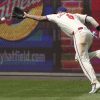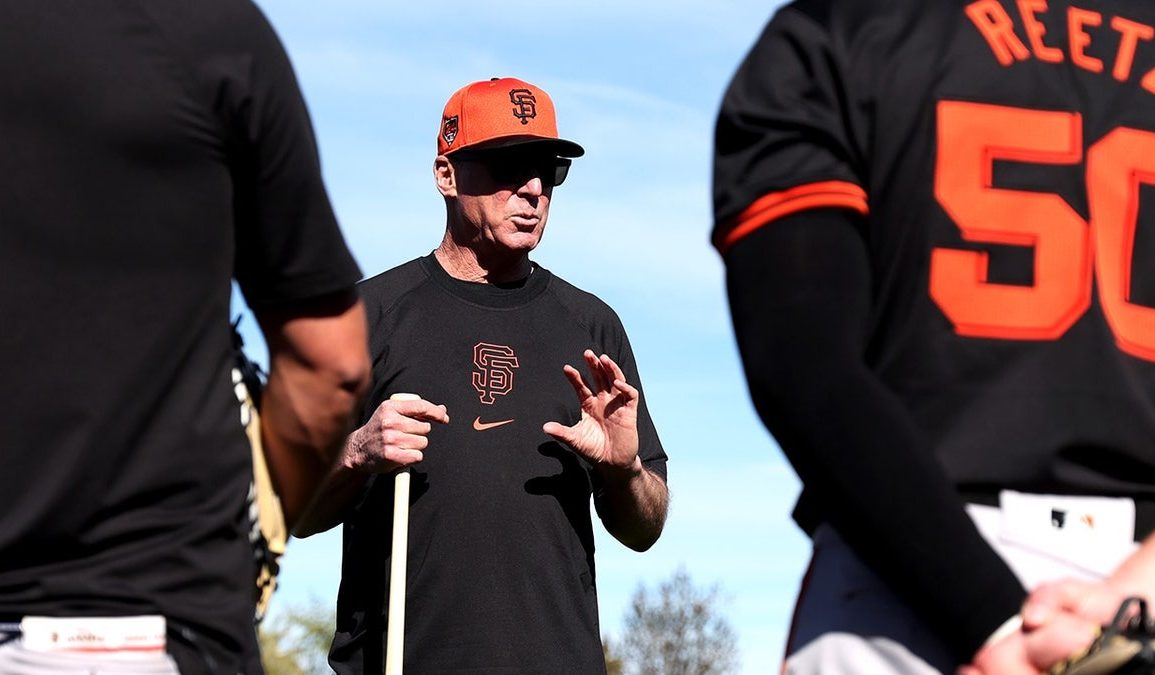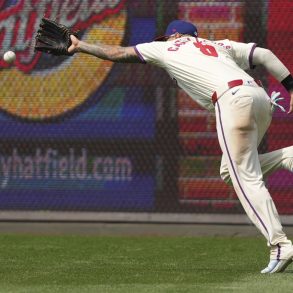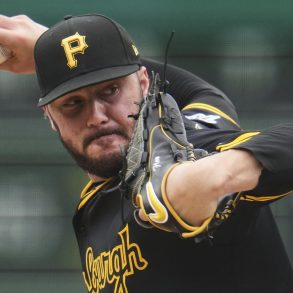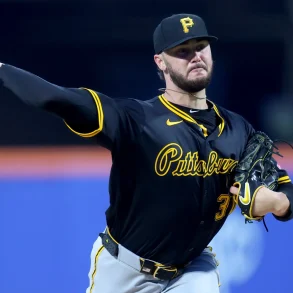Bob Melvin ‘79 sees baseball as more than just a sport—it’s an integral part of his life and identity. A former Major League catcher with years of experience as a coach, he now holds the position of general manager for the San Francisco Giants. Growing up in Menlo Park, Melvin’s roots in the community run deep.
His time at M-A was filled with athletic involvement, as he competed in baseball, basketball, and golf. Early in high school, basketball was his primary passion. Playing on M-A’s basketball team during the 1978-79 season, he helped lead the squad to the CCS finals, where they lost to Saratoga in a 113-103 game—one of the highest-scoring contests in PAL history at the time.
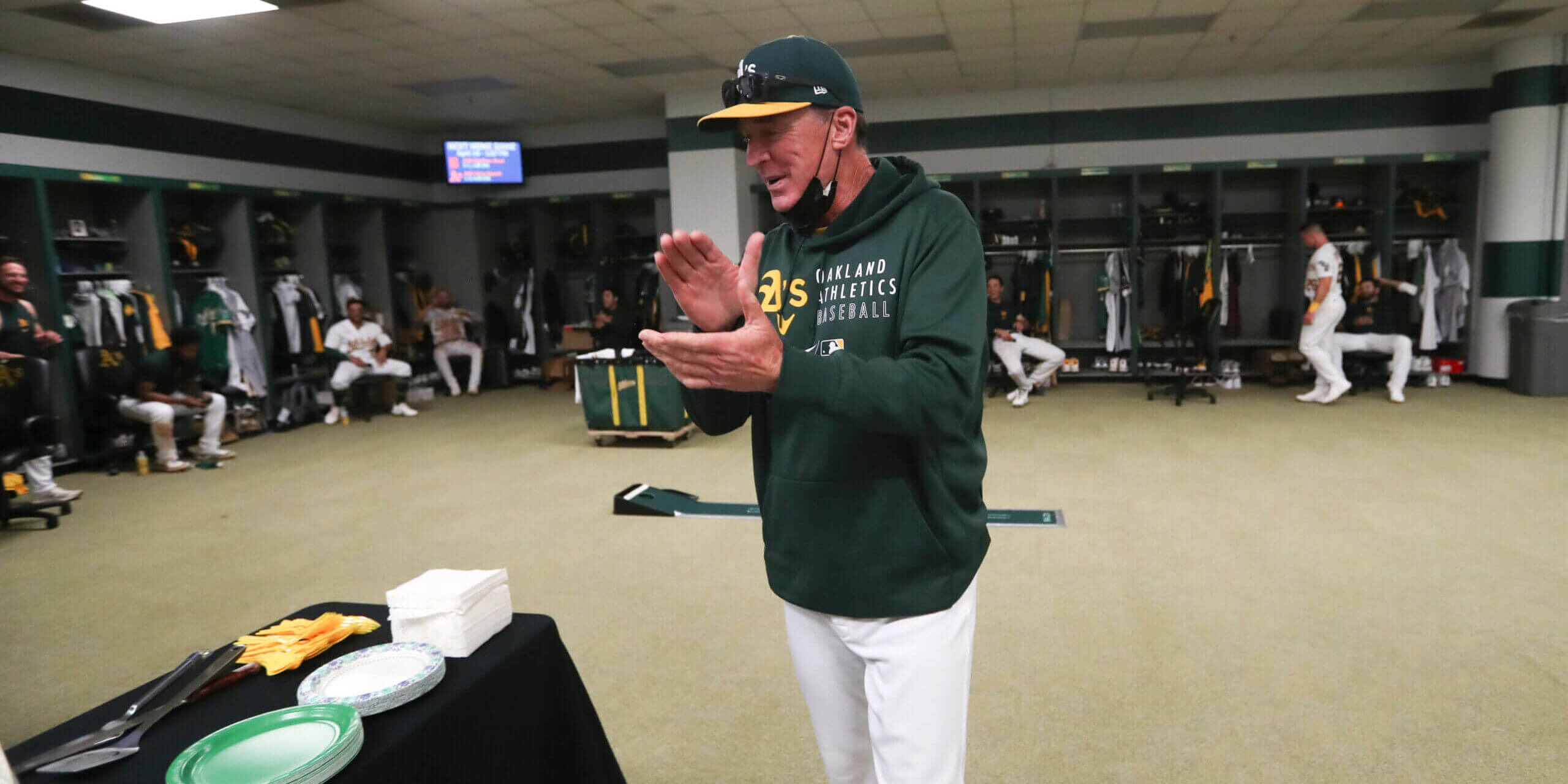
“M-A basketball was something special,” he recalled. “The energy at those games was incredible, with packed stands and sold-out crowds. Baseball, on the other hand, was a different experience. If 50 people showed up for a game, that was considered a great turnout.”
As he entered his junior year, his focus shifted more toward baseball when scouts began showing up to watch him play. “Once I realized scouts were there for me, it became clear that baseball was going to be my path,” he said.
An experience with a scout stuck with him. “I remember trying to lay down a bunt for a hit, but I popped it up and the catcher caught it. As I walked back to the bench, I overheard a scout say, ‘I drove 350 miles to watch this kid bunt?’ That moment made me realize I had to step up and prove myself.”
One of the most influential figures in Melvin’s baseball journey was his high school coach, Frank Bettencourt. “I consider myself fortunate to have played under him,” he said. “There’s no question he played a huge role in shaping my career—after all, I’m still in baseball today.”
His performance on the field was outstanding, batting .474 as a junior and .529 as a senior. His accomplishments earned him a place in M-A’s Hall of Fame, recognizing his impact on the baseball program.
After high school, Melvin had a tough decision to make. He had been drafted by the Baltimore Orioles but at the end chose to attend UC Berkeley, where he played catcher for the Golden Bears. “I was just 17, and I didn’t feel ready to jump straight into professional baseball,” he said. “Going to Berkeley seemed like the right move.”
College Baseball and the Transition to the Pros
During his freshman year, the Golden Bears made it to the College World Series semi-finals. “Balancing baseball and academics in such a competitive environment was no easy task,” he admitted. “I was there to play baseball, but the academic side of things was definitely a challenge.”
His time in college was brief, as the Detroit Tigers selected him as the second pick in the first round of the 1981 MLB Draft after just one year at Berkeley. “Everything moved fast,” he recalled. “One minute, I was in college, and the next, I was heading to Florida for spring training.”
Breaking into professional baseball came with its own set of challenges. “I had always been one of the top players and a leader on my teams, but now I was surrounded by guys who were just as talented,” he said. “The level of competition hit me quickly, and I realized I had a lot of work to do.”
Melvin worked his way through the minor league system as a catcher, climbing from Single-A to Triple-A with the Tigers. “Reaching the big leagues is no easy feat,” he said. “At one point, I was in Triple-A but got sent back down to Double-A, and it felt like a major problems. You have to believe in yourself and stay confident in your ability to make it to the majors.”
His big-league debut came in 1985 with the Tigers. After one season, he was traded to the San Francisco Giants, where he spent three years before moving on to the Baltimore Orioles, Kansas City Royals, Boston Red Sox, New York Yankees, and Chicago White Sox over the course of a decade.
Transitioning between teams became a regular part of his career, requiring him to adjust to new environments constantly. “Getting traded for the first time was tough,” he admitted. “That was the team I had grown with, and it was hard to leave. But once it happened, I understood that baseball is a business. Moving around opened up more opportunities for me.”
Life as a professional athlete also meant frequent travel. “You get used to it,” he said. “There’s a home base, but during the season, you’re always on the move. It’s just part of the job.”
One of his most memorable experiences came in 1989 when he reached the World Series with the Giants. Though the team was swept 4-0 by the Oakland A’s, he still considers it one of the standout moments of his career.
Following his retirement as a player, Melvin transitioned into coaching. He started as a scout for the Milwaukee Brewers in 1996, evaluating prospects before eventually taking on coaching roles in the minor leagues.
His coaching career quickly progressed, leading to a spot as the Brewers’ bench coach in the major leagues. He worked under manager Phil Garner, a former Giants teammate, and played a key role in strategic decisions during games.
Melvin’s coaching journey included three years in the minor leagues, two seasons as a major league coach with the Brewers, and a stint as the Arizona Diamondbacks’ bench coach from 2001 to 2002. He was part of the staff when the Diamondbacks won the World Series in 2001. “Coaching was a natural step for me,” he said. “I considered other paths, but baseball was always where my passion lay.”
His time as a bench coach helped prepare him for a managerial role. “It forces you to think like a manager,” he explained. “You need to anticipate decisions, provide insights, and view the game from a strategic standpoint.”
Bob Melvin: Managing at the Highest Level
In 2003, he took the helm as manager of the Seattle Mariners. “Becoming a manager wasn’t something I had actively pursued, but Phil Garner always told me I would end up in that role,” he said. “At some point, it just felt inevitable.”
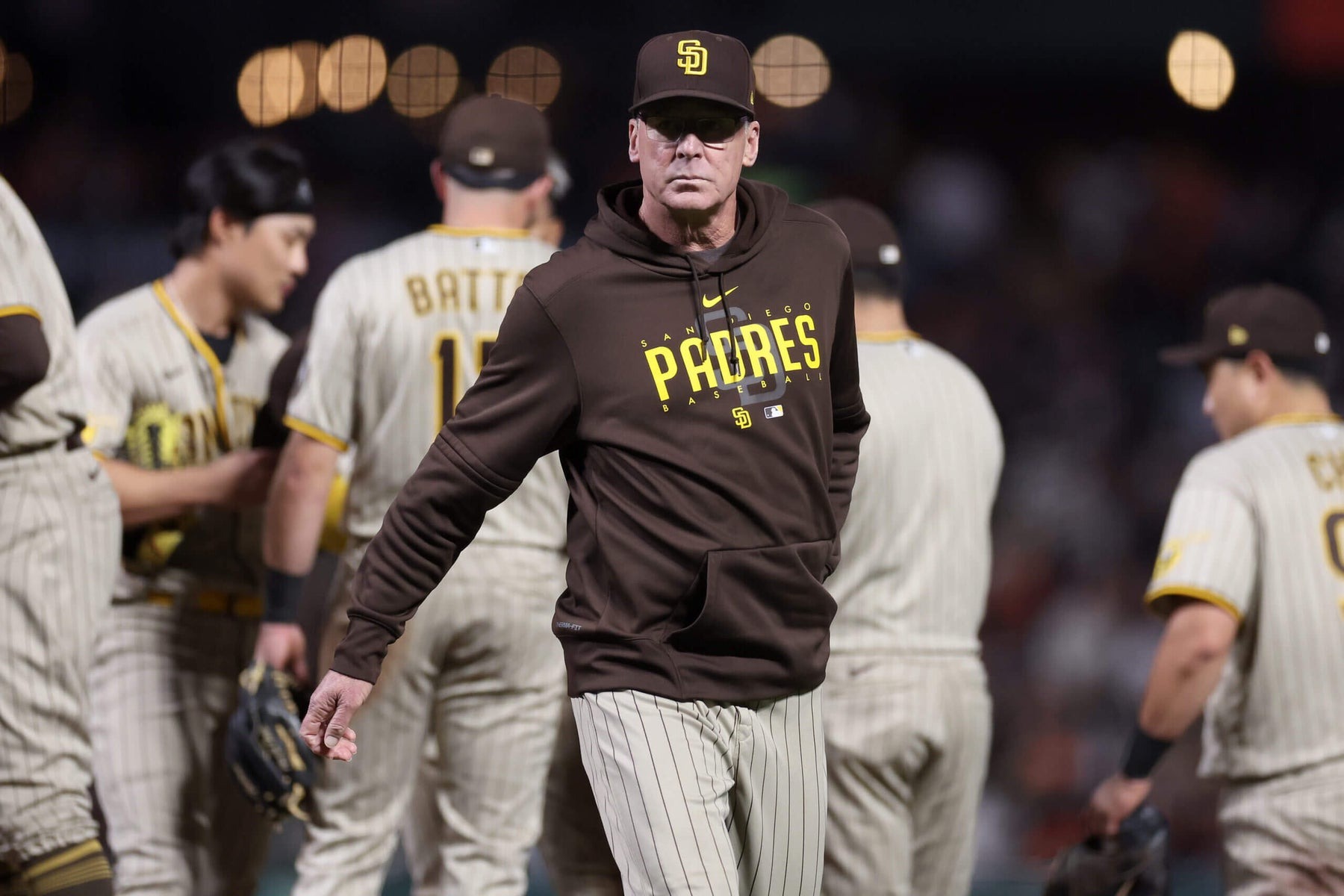
Following two seasons in Seattle, he managed the Arizona Diamondbacks from 2005 to 2009. He later served as a special assistant scout for the New York Mets in 2010 before taking on the managerial role for the Oakland A’s, a position he held for 11 seasons. “Returning to the Bay Area was an incredible opportunity,” he said.
After a successful run with the A’s, Melvin spent two seasons managing the San Diego Padres before stepping into his current role as the San Francisco Giants’ manager in 2023. “It’s honestly a dream come true,” he said. “Thinking back to my time at M-A, I never imagined I’d not only play for the Giants but also manage both the A’s and the Giants. It still feels surreal.”
Walking into the Giants’ ballpark brings back childhood memories for Melvin. “I think about all those times I went to Giants games as a kid,” he said. “Now, leading this team in my hometown comes with a great sense of responsibility.”
His game-day routine is meticulous, involving lineup preparation, player reports, overseeing batting practice, pregame meetings, and press conferences. “The daily routine is something I thrive on,” he said.
While he remains involved in team practices, his managerial role places a greater emphasis on in-game strategy and decision-making under pressure. “Of course, I love the competition, but what truly matters are the relationships you build with the players,” he said. “Those bonds are what make this job meaningful.”
The sport has provided valuable life lessons. “Baseball teaches you to handle problems,” he said. “Injuries happen, bad games happen, but learning how to deal with challenges in sports prepares you for adversity in life.”
For Melvin, the connection between the Giants and their fans is special. “Seeing everyone leaving the ballpark in black and orange makes me realize we’re not just playing a game—we’re bringing entertainment to an entire city,” he said. “It’s incredible to witness how much this team means to San Francisco.”
Looking ahead, he has one clear objective. “Winning a World Series in San Francisco is the ultimate goal,” he said. “I can’t even put into words what that would mean to me.”
To current M-A student-athletes, Melvin offers simple advice. “Enjoy every moment,” he said. “Sports should be fun, and you never know how long your career will last. Make the most of it and appreciate how it prepares you for whatever comes next.”
